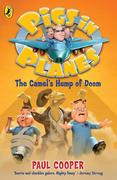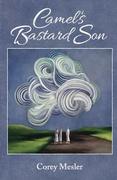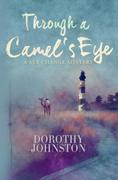52 Results for : camel's
-

The Nazi Invasion of Poland: The History of the Campaign That Started World War II , Hörbuch, Digital, ungekürzt, 87min
The object of the war is...to physically destroy the enemy. That is why I have prepared, for the moment only in the East, my 'Death's Head' formations with orders to kill without pity or mercy all men, women, and children of Polish descent or language. Only in this way can we obtain the living space we need. (Hitler, August 1939) Throughout 1938 and 1939, conflict broke out across Europe after the social and economic disorder brought about by World War I helped the Nazis rise to power in Germany. In 1937, Adolf Hitler declared the Treaty of Versailles void and began aggressively annexing parts of the European continent. Europe's attempts to appease him, most notably at Munich in 1938, failed as Nazi Germany swallowed up Austria and Czechoslovakia by 1939. Italy was on the march as well, invading Albania in April of 1939. The straw that broke the camel's back, however, was Germany's invasion of Poland on September 1 of that year. Two days later, France and Great Britain declared war on Germany, and World War II began in earnest. Of course, as most people now know, the invasion of Poland was merely the preface to the Nazi blitzkrieg of most of Western Europe, which would include Denmark, Belgium, and France by the summer of 1940. The resistance put up by these countries is often portrayed as weak, and the narrative is that the British stood alone in 1940 against the Nazi onslaught, defending the British Isles during the Battle of Britain and preventing a potential German invasion. ungekürzt. Language: English. Narrator: Dan Gallagher. Audio sample: https://samples.audible.de/bk/acx0/035553/bk_acx0_035553_sample.mp3. Digital audiobook in aax.- Shop: Audible
- Price: 9.95 EUR excl. shipping
-

The British Army During the Second World War: The History and Legacy of the Army Across All Theaters of World War II , Hörbuch, Digital, ungekürzt, 271min
Europe’s attempts to appease Hitler failed, as Nazi Germany swallowed up Austria and Czechoslovakia by 1939. The straw that broke the camel's back, however, was Germany's invasion of Poland on September 1 of that year. Two days later, France and Great Britain declared war on Germany, and World War II had begun in earnest. Of course, as most people now know, the invasion of Poland was merely the preface to the Nazi blitzkrieg of most of Western Europe.The narrative is that the British stood alone in 1940 against the Nazi onslaught, defending the British Isles during the Battle of Britain and preventing a potential German invasion.At the beginning of 1941, it was unclear whether the Allies would be able to remain in the war for much longer. British Prime Minister Winston Churchill had already immortalized the men of the Royal Air Force with one of the West’s most famous war-time quotes, but the potential of a German invasion of Britain still loomed. The Allied victory in the Battle of Britain inflicted a psychological and physical defeat on the Luftwaffe and Nazi regime at large, and as the last standing bastion of democracy in Europe, Britain would provide the toehold for the June 1944 invasion of Europe that liberated the continent. For those reasons alone, the Battle of Britain was one of the decisive turning points of history’s deadliest conflict. The British sought American help in North Africa, where British General Bernard Montgomery was fighting the legendary “Desert Fox”, General Erwin Rommel. At the same time, Stalin was desperate for Allied action on the European continent that could free up the pressure on the besieged Soviets. President Roosevelt had a consequential decision to make, and he eventually decided to land American forces on North Africa to assist the British against Rommel, much to Stalin’s chagrin. But the Red Army’s tenuous hold continued to cripple the Nazi war machine while buying the other Allies precious time. ungekürzt. Language: English. Narrator: Colin Fluxman. Audio sample: https://samples.audible.de/bk/acx0/129932/bk_acx0_129932_sample.mp3. Digital audiobook in aax.- Shop: Audible
- Price: 9.95 EUR excl. shipping
-

The Special Air Service: The History of the Secret British Special Forces Unit from World War II to Today , Hörbuch, Digital, ungekürzt, 102min
“The passive resistance to war, in which we have acquitted ourselves so well, must come to an end.” (Prime Minister Winston Churchill) Europe’s attempts to appease Adolf Hitler, most notably at Munich in 1938, failed, as Nazi Germany swallowed up Austria and Czechoslovakia by 1939. Italy was on the march as well, invading Albania in April of 1939. The straw that broke the camel's back, however, was Germany's invasion of Poland on September 1 of that year. Two days later, France and Great Britain declared war on Germany, and World War II had begun in earnest. Of course, as most people now know, the invasion of Poland was merely the preface to the Nazi blitzkrieg of most of Western Europe, which would include Denmark, Belgium, and France by the summer of 1940. The resistance put up by these countries is often portrayed as weak, and the narrative is that the British stood alone in 1940 against the Nazi onslaught, defending the British Isles during the Battle of Britain and preventing a potential German invasion. At the beginning of 1941, it was unclear whether the Allies would be able to remain in the war for much longer. British Prime Minister Winston Churchill had already immortalized the men of the Royal Air Force with one of the West’s most famous war-time quotes, but the potential of a German invasion of Britain still loomed. With the comfort of hindsight, historians now suggest that the picture was actually more complex than that, but the Battle of Britain, fought throughout the summer and early autumn of 1940, was unquestionably epic in scope. The largest air campaign in history at the time, the vaunted Nazi Luftwaffe sought to smash the Royal Air Force, but thankfully, the RAF stood toe to toe with the Luftwaffe and ensured Hitler’s planned invasion was permanently put on hold. The Allied victory in the Battle of Britain inflicted a psychological and physical defeat on the Luftwaffe and Nazi regime at large, and as the last standi ungekürzt. Language: English. Narrator: Mark Norman. Audio sample: https://samples.audible.de/bk/acx0/110686/bk_acx0_110686_sample.mp3. Digital audiobook in aax.- Shop: Audible
- Price: 9.95 EUR excl. shipping
-

The British Army in the World Wars: The History of Britain’s Ground Forces During World War I and World War II , Hörbuch, Digital, ungekürzt, 361min
World War I, also known in its time as the “Great War” or the “War to End all Wars”, was an unprecedented holocaust in terms of its sheer scale. Fought by men who hailed from all corners of the globe, it saw millions of soldiers do battle in brutal assaults of attrition which dragged on for months with little to no respite.The enduring image of World War I is of men stuck in muddy trenches, and of vast armies deadlocked in a fight neither could win. While these impressions are all too true, they hide the fact that trench warfare was dynamic and constantly evolving throughout the war as all armies struggled to find a way to break through the opposing lines.Needless to say, the First World War came at an unfortunate time for those who would fight in it. After an initial period of relatively rapid maneuver during which the German forces pushing through Belgium and the French and British forces attempting to stymie them made an endless series of abortive flanking movements that extended the lines to the sea, a stalemate naturally tended to develop. The infamous trench lines soon snaked across the French and Belgian countryside, creating an essentially futile static slaughterhouse whose sinister memory remains to this day.As with the other nations involved, the war came as a shock to the British army. For the past century, it had mostly been engaged in colonial conflicts against opponents with far more limited resources and technology, and this created a sense of superiority. Put simply, the British army was used to defeating any opponent it faced, and even against more challenging opponents, Britain came out on top, suffering only a few embarrassments along the way. Europe’s attempts to appease Hitler, most notably at Munich in 1938, failed, as Nazi Germany swallowed up Austria and Czechoslovakia by 1939. Italy was on the march as well, invading Albania in April of 1939. The straw that broke the camel's back, however, was Germany's invasio ungekürzt. Language: English. Narrator: Colin Fluxman. Audio sample: https://samples.audible.de/bk/acx0/130141/bk_acx0_130141_sample.mp3. Digital audiobook in aax.- Shop: Audible
- Price: 9.95 EUR excl. shipping
-

The Works of F. Scott Fitzgerald: 45 Short Stories and Novels , Hörbuch, Digital, ungekürzt, 2711min
Fitzgerald's short stories have themes that not only relate to the problems and culture of the Jazz Age, but also to the promises and despair encountered by the youth, as well as the aging. Love and relationships between two mismatched or unlikely characters are common, such as people who are unlikely to develop a spark of romantic interest between each other. The plots are usually set in the culture of the upper middle class and the elite, with characters either from this social group or aspiring to become part of it. Being inspired by the events that occurred during The Great Depression and the stock market crash, the stories also involve characters who lose wealth, but who are still trying to maintain their opulent lifestyle. However, Fitzgerald's stories will remain relevant no matter which era listeners are born into, as finding true love and happiness, despite the situation, will always be a common part of the human experience. Included in this book: Novels: This Side of Paradise The Beautiful and Damned Short Stories: The Mystery of the Raymond Mortgage Reade, Substitute Right Half A Debt of Honor The Room with the Green Blinds A Luckless Santa Claus Pain and the Scientist The Trail of the Duke Shadow Laurels The Ordeal Little Minnie McCloskey: A Story for Girls The Old Frontiersman: A Story of the Frontier The Diary of a Sophomore The Prince of Pests: A Story of the War Cedric the Stoker The Spire and the Gargoyle Tarquin of Cheapside Babes in the Woods Sentiment - And the Use of Rouge The Pierian Springs and the Last Straw Porcelain and Pink Head and Shoulders Benediction Dalyrimple Goes Wrong Myra Meets His Family Mister Icky The Camel's Back Bernice Bobs Her Hair The Ice Palace The Offshore Pirate The Cut-Glass Bowl The Four Fists The Smilers May Day The Jelly-Bean The Lees of Happiness Jemina O Russet Witch! Tarquin of Cheapside The Popular Girl Two for a Cent The Curi ungekürzt. Language: English. Narrator: Jay Wohlert. Audio sample: https://samples.audible.de/bk/acx0/005406/bk_acx0_005406_sample.mp3. Digital audiobook in aax.- Shop: Audible
- Price: 9.95 EUR excl. shipping
-

Pigs in Planes: The Camel's Hump of Doom
Pigs in Planes: The Camel's Hump of Doom: ab 4.99 €- Shop: ebook.de
- Price: 4.99 EUR excl. shipping
-

-

-

Only a Fool Sleeps in the Shadow of a Camel's Back
Only a Fool Sleeps in the Shadow of a Camel's Back: ab 5.49 €- Shop: ebook.de
- Price: 5.49 EUR excl. shipping
-

Through a Camel's Eye
Through a Camel's Eye: ab 6.99 €- Shop: ebook.de
- Price: 6.99 EUR excl. shipping